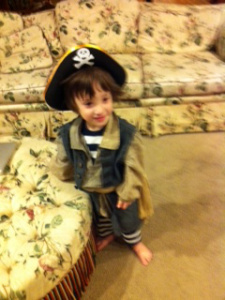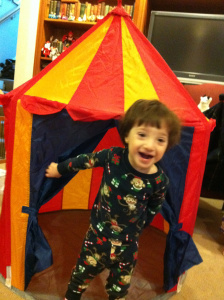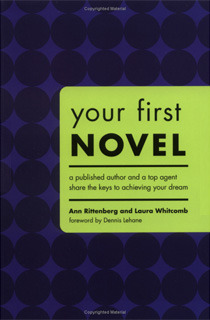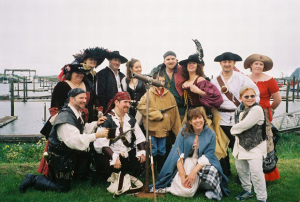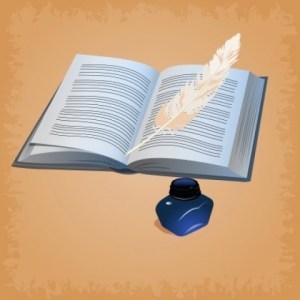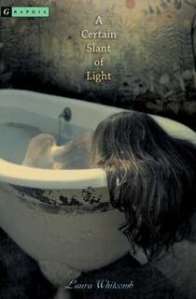Laura Whitcomb's Blog, page 4
November 21, 2012
The Power of Visioning
After I’d written and rewritten my novel, A Certain Slant of Light (the first one that sold,) I felt like I’d become a good enough writer to break in, but it still felt as if there was a vast canyon between me and getting published. As I researched agents and sent out queries, I also did inner-work.
Every day (sometimes more than once a day) I would picture the barrier between me and getting published as a physical wall and every day I’d knock that wall down in my mind. Sometimes I pictured myself hacking at it with an axe until it caved in; sometimes I pictured myself riding up to it on a horse and having the horse kick a hole in the wall with its hooves; sometimes I’d pictured my friends joining me to help attack the wall; sometimes I even pictured myself standing alone at the foot of the wall and singing a great note that vibrated through the stone and mortar, crumbling it like the walls of Jericho brought down by Joshua’s trumpet blast.
When that wall came down I always pictured myself joyfully leaping to the other side and sometimes even doing a victory dance. Eventually I began to picture my friends and relatives climbing over the rubble that had once been the wall and celebrating with me. And then I began seeing myself taking the broken pieces of wall and making beautiful flowerbed borders and fountains and sculptures out of them in the garden on the winning side of the wall.
I can’t prove that these meditations helped, but I never gave up picturing that wall coming down until I sold my first book and now I’m a full-time novelist. Visualizing what I want to manifest into reality has become a common practice in my life.
Another visioning exercise that felt powerful was the tipping of my proverbial hat to the writers who came before me. Each day for a minute or two I’d look at the novels in my bookcases and give a nod of thanks to each author as I said aloud, “What God has done for others God does now for me and more.” (This is paraphrased from Florence Scovel Shinn’s book, The Game of Life and How to Play It.) Each of those writers had been in my shoes at some point. And someday soon I’d be in theirs. Picturing myself following in those authors’ footsteps was deeply inspiring and comforting to me.
And the visioning method can be used for other things, not just writing. When my avenues to adopting a child overseas shut down, I felt stumped. I sat with my sister and a friend of ours and pictured what seemed almost impossible — me adopting a newborn. The foreign adoptions were all babies five to eighteen months old. It seemed unlikely, but I envisioned myself holding a baby who was only a few days old. I said to the universe, “I don’t know how it will happen, but I know that I will adopt a newborn baby and I feel joyful and grateful.” Within a few weeks I found the domestic adoption agency through which I adopted my son, taking custody of him when he was only ten days old.
The visioning process can be used on anything you want to summon. (But only positive visions – never picture something negative no matter how annoying your Ex/crazy boss/loud neighbor can be. What is sent out comes back to the sender, so nothing but good should be pictured here.) You might want to overcome writers block, or finish a current manuscript by Halloween, or get a 50K advance on the novel your agent is pitching next month at a Book Fair. See it in your mind with as much detail as possible. Create a scene instead of just the concept. Don’t just see yourself getting the news of the book deal — see yourself jumping with joy, hearing the exact words your agent uses to break the news to you over the phone, feel the joy of success run through your body. Who will you call first to share the moment? Will you go out to eat to celebrate or throw a party? It’s your fantasy – create it exactly the way you want it to be.
If you want to vision up a miracle, but meditating is not your cup of tea, writing a statement and repeating it might work better. Thoughts become things and thoughts are further empowered by the voice. (We’re writers – we have VOICE.) If you want to sign with the perfect agent, write it down: “I have the perfect literary agent.” Write it out ten times. Or a hundred. Now read them out aloud. All the repeats. Don’t use auto-pilot. Hear the words and mean them as you speak them. The universe will vibrate with your intention and what you have declared will be attracted to you.
I’ve used repeated statements for everything from having my one-on-one pitches at conference go great and getting the apartment I wanted, to finding lost objects and even winning an award. As with all these kinds of techniques, I can’t prove they work, but they feel good and they seem to have a positive effect.
If you want to envision something, but you’re not sure what the perfect version of it looks like, take a tip from my father. When he was told by his doctor that one of his ankles would not sustain his continued tennis habit, he asked for an X-ray of a healthy ankle. He studied the picture of that good ankle as he meditated on healing and, just as he knew it would, his ankle healed enough so that he played tennis (even winning trophies) for years after that.
Yeah, I know. It’s kind of Woo Woo. Try the visioning exercise anyway, even if it sounds silly. And when, to your surprise, it works, I won’t say I told you so. You don’t even have to tell me that it worked for you. (But please do – I’d love that.)
If the visioning process doesn’t seem to be working for you at first, don’t give up. Sometimes it takes longer than others. Relax and try it again tomorrow.
And, by the way, Happy Thanksgiving and good luck to those racing to finish the drafts of their novels by December first. Nanowrimo folk are a brave-hearted clan!


November 2, 2012
November Give-Away
Sorry that there was no October Give-Away, but the one for November is an Advanced Reader Copy of my upcoming novel, Under the Light (in bookstores May 2013), a companion to A Certain Slant of Light. To enter the drawing, send me your name and physical address via the “Email Laura Whitcomb” link on my website before December first.
I hope you all had splendid Halloween adventures. Here is my son, Binny, as the Dread Pirate Robinson.
Great good luck to all you brave writers participating in Nanowrimo! More power to ya!!!


August 26, 2012
Morning Magic
The bad news is, I am not going to teach you a spell to make the agent you queried sign you or the editor to whom you recently sent your manuscript offer you a book deal. The good news is, in this blog post and the next two I am going to share three types of magic practices that I believe helped me break in as a novelist and empowered my career.
Before my son was born, my sister Cynthia and I used to sit down together every day and do prayers and meditations, our Morning Magic, a three part exercise. First we’d start with prayers for family and friends, especially those in need physically, emotionally, spiritually, or financially. Where two or more gather together, the power is multiplied. This is not only good for the receiver of the prayer, it’s a blessing to those who pray. I always feel calmer and clearer at the end of this part of the magic. And something about doing for others before you do for yourself gives the second and third parts of the magic more potency.
Next we’d meditate on prosperity. This could come in the form of abstract images or vivid daydreaming. Sometimes I would do nothing more than feel the joy of what it would be like to have a full and steady cash flow. Other times I’d picture a scene – I am with my child at Disneyland where we have a great room at the Disneyland hotel – as we explore Fantasyland I see that I am wearing new Eileen Fisher clothes – we are so wealthy that we eat lunch at the Blue Bayou restaurant and then shop for a Winnie the Pooh doll and a Mickey Mouse tee-shirt without needing to read the price-tags.
Finally my sister and I would take turns asking for positive visualizations on specific topics. We’d both concentrate on my request for a few minutes of silent visualization and sharing about what we saw, then we’d do the same for her. Sometimes I wanted to picture myself finishing my current novel and having it come out fast and fabulous or (before my son was born) getting the perfect adoption match. Cyn sometimes wanted to picture one of her plays being produced or her next writing cruise going great. It’s amazing how good this makes you feel – inspired, joyful, energetic. And, I’m telling you, miraculous things have been manifested.
As an example:
A few months before I adopted my son, I got a cryptic email from my agent saying we might be hearing some good news from overseas soon. That meant a new foreign deal was probably on its way. The largest foreign I’d had before came to about $8000.00. Though it seemed unlikely, during our Morning Magic I said, “Let’s picture this new deal being enough to pay for the whole adoption.” (The adoption fees were between 10,000 and 20,000 dollars.) So we concentrated on that idea for just a few minutes. Within a couple of days I got the news that I’d sold the German rights to my first novel in a bidding war for 20,000 euros. Not dollars. Euros. More than enough to pay all the adoption costs. This might have happened even without the Morning Magic, but I’m not sure about that.
Since Binny, now two and a half years old, has become mobile it’s become harder to do Morning Magic – you really can’t take your eyes off the little guy, even in a baby-proofed room — but I hope we can figure out a way to get back to it – it’s priceless.
If you don’t have a prayer buddy, you can do the same three steps (prayers for others, prosperity, and current needs) on your own. AND you can also try a Daily Visioning paragraph. Each morning I slightly revise, but mostly just recite, a paragraph that instructs my day on how to be wonderful.
“Today I will get great stuff done and be inspired by it; I’ll get great writing done and LOVE what I come up with; I’ll get wonderful things in the mail including lots of money; I’ll also get great news about my career and money; I’ll look and feel great all day and night; I’ll sleep sweetly with delightful dreams; I’ll experience the weather as gorgeous and perfect (this works well – I almost always enjoy the weather in Oregon, rain or shine); I’ll feel naturally happy thus drawing even more good to me; I’ll hear that Cyn, Mol, and Binny (include your household members)have great days, too; Max will feel perfect all day and night and be perfectly well behaved and do all his pees and poos outside (important if you have a high-maintenance pet); (insert any special event for the day and how it will go well); and I’ll get fabulous fan mail! Thank you, dear God, for all these your gifts which bring us great joy.
I have no proof that this paragraph actually reforms my day, but it feels good and so I continue to read it out loud every morning. If words become things, as they say in The Secret (Rhonda Byrne,2006)and The Law of Attraction (Michael J. Losier, 2006) and The Game of Life and How to Play It (Florence Scovel Shinn, 1925) then I want positive words floating in my head and flowing from my mouth.
Next time I’ll describe some visioning techniques that I believe helped me land my first book deal.


August 25, 2012
August/September Give-Away
So sorry for the delay in announcing the prize for the Give-Away this month–we’ve been hip deep in a family reunion which was noisy, fun, funny, heartwarming, and exhausting, as all family gatherings are that include four people three years old or younger, hee hee.
In honor of my having participated in the 3-Day Novel Writing experience 14 times in my life, every Labor Day weekend from 1987 through 2000, the Give-Away this month and for September is a signed copy of Your First Novel. I’ll draw two names from all those who enter before the first day of October. Just send me your name and physical address via the “Email Laura Whitcomb” link on my website.
And if you’d like to enter the 3-Day Novel Writing contest this year, see their website at: www.3daynovel.com — it’s fun, crazy, and it always left me feeling awesome.


July 7, 2012
Full Body Research
I’m actually a loyal Law & Order girl, but a few years back I discovered a program called City Confidential. For the most part it’s just another true crime show, but what intrigued me was how it introduces the viewer to the city where the murder/kidnapping/other scandal takes place. I got an overview of the town’s history, its shameful secrets, its pride, its quirky exports, and a nutshell of the collective personality of its residents. By the time the narrator got to who was murdered, I was already anticipating what effect it would have on the town – oh, man, they’re gonna have a riot (or, in another episode, a cover up.)
I loved how different the cities were – one came from a long tradition of Appalachian music, another was built on lumber, a dairy farm town, the raisin capitol of the country, and so on. One city was wealthy and conservative, another a hippie Mecca, another divided between the right wing protestants and the Wicca covens. Grudges, superstitions, old boy loyalties effected the police procedures, jurors, judges, news coverage, and the rumor mill. Everything from sports rivalries to flood damage made the story more poignant. There was no way to separate a city from its history.
Seeing another City Confidential episode recently made me want to make my novel’s “home town” buzz with life. I started thinking about community rivalries and biases, regional slang, holiday traditions, and pet peeves. I thought about successful writers who make their cities come to life like Dennis Lehane in Mystic River or J. K. Rowling’s Hogwarts and Diagon Alley, the island community in Mary Ann Shaffer and Annie Barrows’ The Guernsey Literary and Potato Peel Pie Society, and all of the foster homes in Janet Fitch’s White Oleander.
I love doing traditional research, but sitting in front of a laptop screen or with my head in a book can become isolating. It would be fun to have the time and funding to do what the City Confidential writing staff did and immerse myself in a town, eat in its diners, chat with its town historians.
And then I realized that I did that very thing every week.
I live in Wilsonville, but I sing with a madrigal group in Sherwood, Oregon. I rehearse there once a week and, at their annual Robin Hood Festival, my choir serenades the knighting ceremony. Sherwoodians who have given back to their community are recognized by being dubbed a “Sir” or “Lady” by the king and surrounded by fair maidens and merry men. The ritual is corny but also touching. A window into what is valued by a group of people. I wasn’t planning to set a story in Sherwood, but it got me thinking again . . .
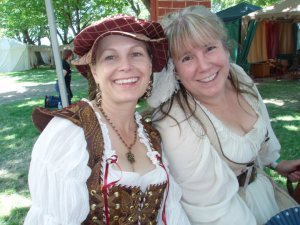
In Ren garb (R) with fellow Sherwood singer, Debbie Ryan (L).
The best kind of research involves all the senses. I had a rich feel for Sherwood not by reading an article or looking at archival photographs, but by walking through it. If my novel was set in this town I’d know exactly how this senior couple dressed alike or how that junior high dance team fidgeted before going on stage, the kind of slogans the small business owners printed on sweatshirts, the exact pitch of children’s shrieks coming from the bouncy inflated castle.
Yes, I reaffirmed it for myself, the best kind of research uses your whole body and mind. Great work if you can get it. So go get it! I’ve done some odd things in my life just to see what it felt like (don’t worry, nothing violent or perverse) and it was worth it. I spent a year at the age of fifteen painstakingly learning Joplin’s “Maple Leaf Rag” so that I could feel what it was like to sit down at a piano and really let loose. (It feels great, by the way. I’ve forgotten how to play the song now because eventually I stopped practicing it, but I’ll never forget the sensations.) I took archery at a community college for a semester in my twenties because I wanted to write about a girl who could shoot and needed to feel the bow and arrow in my own hands. I never got very good at it, but I did feel the string pressed to my cheek and hear the tick of the bow arching and the soft thwack when my shaft hit the hay bale (or the turf several feet short) and I felt the pain of accidentally striking myself in the arm when I extended my elbow too far. All part of full-body research.
Other things I have done that I could not have imagined without experiencing them with my whole body: dressing in a toga and playing a small part in a Greek play (the nerves in the dark wings before I went on stage, the warmth of theater make up and lights, the camaraderie of curtain calls choreographed with a line dance – things I missed out on in high school because I did music instead of drama); spending 48 hours making a stop action animated super 8 movie (three and a half minutes of film, moving a lump of clay around a fraction of an inch per frame); snorkeling over a coral reef (rather daring for me since I’m a little claustrophobic about breathing); being the stage hand for a play in which I had to make the sound effect of a light breaking by standing over a crashbox in the wings and hitting a light bulb with a hammer; creating haunting music with a bell choir (swinging the F and G in a gentle dance and feeling their trembling hushed as I dampened them on my shoulders); playing a wench in a pirate reenactment troop, raiding an ale house, holding the punk for the firing of the cannons (wearing a corset, shouting at the top of my lungs, feeling the rattle of the cannon blast in my bones and the smell of black powder smoke.)
You may have a list far more interesting than mine of things you could not comprehend by books or Internet alone. You may have, but I’ve never climbed a mountain or built a table or ridden a motorcycle or hitchhiked through Europe. Possibly you’ve never let a newborn fall asleep in your arms (for me, yes), ridden a horse in a parade (no), walked a dog that doesn’t mind you (for sure yes), knelt in an unfamiliar church (yes, strange), read in a poetry slam (no), ran a marathon (ummm, no), or competed in a sand sculpture contest (that sounds cool). Think about it. What does your next manuscript call you to try? Whatever I need to do next, I don’t want to do it only with my gray matter – I want to jump into it with all my cells. (Oh, and by the way, my next project will be a YA fairy series and as research I plan to walk to my neighborhood cemetery at midnight on May first, a night known as especially active for the Little People.)
(first published in the Willamette Writers Newsletter in 2011)








July 6, 2012
July Give-Away
The winner of the June Give-Away was Silke from Salzgitter, Germany. The July Give-Away, in honor of the approaching Willamette Writers conference, will be a grab bag of well-loved (as in used) copies of books on writing that have helped me.
Send me your name and physical address via the “Email Laura Whitcomb” link on my website to enter. Good luck to all!








June 9, 2012
What I Learned from a Few Minutes of Bad Reality TV
(reprinted from a 2011 Willamette Writers newsletter)
I really only like about five minutes of the show. The rest of America’s Next Top Model I can hardly stand. I won’t tune in until about 45 minutes after the hour – that’s when I’m most likely to find the analyzing of the photography. This segment fascinates me because it feels like an analogy for critiquing fiction writing.
The judges (famous models, photographers, runway coaches, designers, agents) critique the contestants’ weekly photo shoots on (in my opinion) four levels of competency.
Level one, the technical minimum: The model has to find the light, not cover up the item or items she’s supposed to be selling, and follow the directions (if asked to act the part of a dancer/animal/celebrity she does so.) These are like the no-brainers in writing — putting together a sentence, punctuation, spelling, etc.
Level two, the basics: The model has to know the good and bad angles for making her neck and limbs look longer, her hips and belly smaller, and so on. To me this is equivalent to having a good vocabulary and a story with a beginning, middle, and end. The model should also avoid looking dead in the eyes and not too harsh, the same way your writing shouldn’t be boring or cliché and should include at least some sympathetic and accessible characters. The model shouldn’t be too obvious when showing off the item she is selling so that the shot doesn’t end up looking like a cheesy TV commercial instead of a fashion magazine spread, just as your writing shouldn’t be corny or forced.
Level Three – advanced technique: When a model is asked to work with other models, with animals, even props and set pieces, she either connects authentically with the other elements in the picture or she comes off seeming detached and out-of-place. It’s similar to the way your dialogue, character evolution, and turning points need to be character driven. When a model portrays a specific kind of person, animal, object, or concept she will usually fail if she is thinking too much about the outside details (make up, costume, props, set, the photo shoot staff and equipment) and she will usually succeed when she focuses on the inside or essence of the thing she is meant to be. A model dressed like a bird fails because she comes off like a model dressed as a bird trying to look pretty or because she’s copying a stereotyped bird pose. A different model succeeds because she doesn’t worry about anything but thinking like a bird. (Of course, she is only free to do this because she’s learned her basics so well that they have become second nature.) I like this stuff. As a writer, this is when you find out everything there is to know about a character before you write about her. Once you know how she feels and thinks and everything she’s been through, what she longs for and fears, exactly how she talks, then you can let her loose in a scene and she’ll behave organically. She’ll be real. (And of course you have to know the basics of writing first so you can be free to not think about them.)
But what really intrigues me is . . .
Level four – Mastery: The model has done everything right – no complaints – she has not only handled levels one through three, she’s demonstrated all her skills in that one photo. Great job. But there’s something even better than getting everything right, and that’s delivering the “it” factor. The judges say, “I don’t know why, I just love this picture.” The model may not even have done everything perfectly, but there’s something extra about her that wins the judges over. She learned the rules and now she’s broken a few – some choice or choices she has gone with make the photograph exquisite in spite of the mistakes. Or better yet, because of the mistakes . Which are no longer mistakes. Through her deviation from the norm she has acquired a mysterious greatness, something that can’t be taught and no one could have predicted.
In an exercise where the models were asked to portray men, the one who succeeded best was the one who did what she thought a man would do rather than trying to look like a man. In another episode, models were asked to choose a signature pose, their best, something they could imagine getting famous for. The most successful model was the one who chose the seemingly unattractive idea of having a hunched back but then translated that pose into the high fashion version of itself. These are things that no one specifically told them to do. Teaching them the basics helped, but this level four success was beyond the “how to” type of advice.
So what can I learn from something that can’t be explained or anticipated? I’m not sure, but I do know I’m taking something meaningful away from these photo critiques. A reminder that making the basics second nature is what gives us the freedom to be great? Yes, but it’s more than that. It has something to do with us recognizing the possibility of fabulous success in our futures. We’re climbing our way to better versions of ourselves and our writing. We’re just getting our footing here, walking that line between too much and almost there. It has to do with confidence. And a heightened love of quality that is just over our heads, almost within reach. It’s about believing that that paragraph or page or chapter we will create tomorrow will be a stunning surprise. Who could have known? It’s about sensing when we’re ready to follow our gut instincts even if they don’t seem to make sense. We won’t think about sounding like writers, or acting like writers – we’ll be writers.
It also has something to do with being open. I don’t think any of us can be great without admiring greatness in others. I have a feeling that there is a direct correlation between the love we offer our favorite writers and the love that will grow inside our future fans. I can’t prove it, but I bet the models who took those “I don’t know why, I just love it!” photographs said those same words about their favorite fashion spreads in magazines years before they ever stepped in front of a camera.
So even before you work your way through writing levels one through four, start out by doing for others as you hope others will do for you. Think about some piece of writing you love but you’re not sure why. How in the world did he get you to worry about that weird character? How did she make you cry with so few words? Then write that author a fan letter. I bet someday you will get a letter very much like it from one of your fans.








June Give-Away
The winner of the May Give-Away was Marianne of Hampden, Maine. The June Give-Away will be a signed copy of A Certain Slant of Light. To enter, send me your name and physical address via the “Email Laura Whitcomb” link on my website.








May 9, 2012
Invite the Right One In
(reprinted from the Willamette Writers newsletter, May 2011)
In traditional tales of the supernatural, there are certain rules. Devils and vampires are both barred from entering your home unless you invite them in. But on the other hand, a good being (wizard, angel, fairy, good witch) might come to your doorstep disguised as a beggar and bless you with your heart’s desire if you feed and house them for the night. So the trick is to figure out how to tell the difference between good and evil. As a writer you also need to know when to open your heart and mind to a project or idea and when to say no.
Closing the Door
Recently I wrote down a bit of advice for a friend’s son who is coming of age. We were asked to pass on wisdom about growing up and becoming a happy, healthy adult. I chose to talk about friendship. I told the young man that finding and keeping friends is an art. Choose wisely. Some people you are meant to friend and others you are meant to drift away from. Hold on to those friends that encourage and love you unconditionally. Let go of friends that make you feel slimed or diminished. The friends that make you feel great will also probably be the ones that feel encouraged and loved by you, as well.
I think this is also true of writing projects. If you are working on a project that makes you feel like crap every time you delve into it or even think about it — if that project makes you feel like a bad writer or like a failure– walk away. Put it in a drawer. Turn to something else.
But, you protest, I need to write it because (choose one of the below):
I told everyone I know I’m working on it
I already told an editor or agent that I finished it
I’m writing it for my ______ (loved one)
It’s supposed to be cathartic
I told my writers support group I’d let them read it by August
It’s what publishers are looking for right now
I don’t want people to think I’m a quitter
A psychic told me I’d make tons of money from it
All of the above
Believe me, if a writing project makes you feel terrible about yourself, it’s not for you. Stop until a time when/if it has a different effect on you. Life’s too short to wallow in negativity.
Now I’m not talking about writing projects with dark plots or characters – they can be delightful to compose and revise – they can fill the writer with glee and inspiration.
And I’m not talking about projects that are difficult to write – they can be your most rewarding manuscripts. We all feel a little down now and then about even our most thrilling books-in-progress, but you know what I’m talking about here, right? Feeling a little down is a passing thing.
What I’m referring to is the gut reaction of dread we sometimes have to a certain project and those stories can be anything from a sunny children’s picture book to a gritty detective novel.
Let your emotions be your guide. Do you feel stronger when you think about writing the project or weaker? Excited or depressed?
The project I’m warning you about is like that friend you need to disconnect from, the one that always makes you feel just a little stupid or ugly or discouraged after you’ve spent a few hours with him. Gently let those friends and projects go. It’s okay to close the door on this kind. Turn and take a fresh breath and follow your bliss. There will always be a true friend and a new story on the path toward your happiness.
Opening the Door
In my second book on writing, NOVEL SHORTCUTS, I talk about listening to your ghosts, the seemingly irrelevant snippets of poems or songs that come to visit sometimes because you are meant to take something from them (a mood or concept) to improve your novel. It’s important to be sensitive to these messengers. But you may also meet other visitors from time to time. I myself was once visited by what I kiddingly refer to as the Spirit of Novels Past.
A few years before I wrote A Certain Slant of Light, my first book sale, I had a dream. Someone from the first novel I ever wrote, the one I started in high school, came to see me. Not sure which character she was or whether she was a character from the book at all. Perhaps she was just the essence of the book. This novel was a young adult Medieval romance adventure (a cross between The Princess Bride, Romeo and Juliet, and Butch Cassidy and the Sundance Kid) with sword fights, a princess in love with a peasant, rescues and escapes, a spell of immortality, night creatures, and castles.
The Spirit of Novels Past spoke only a few words: “Something about this place is right.” It sounds cryptic as I write it down now, but during the dream I had an instant sense of the meaning. Until that night I’d been feeling like I’d matured and moved on from young adult novels. And I was too grown up for magic. But now I realized I was wrong. I’d been on the right track back in high school. Maybe I didn’t know exactly which part of that first novel was important to return to (ideas, scents, colors, textures, themes, emotions?) but I believed I should listen. I opened the door to this messenger. Although the manuscript I broke in with had no castles or swords, it was a YA supernatural romance. I don’t think that was a coincidence.
The easiest way to know which direction to go when you’re at a crossroads in your writing life is to use a pleasure compass. If a project or idea brings you joy it is probably right for you. Projects may be offered you in serendipitous circumstances but probably not all will be meant for you. Some will give you feelings of dread in your basement or attic (I paraphrase Ghostbusters) and some will fill you with a sense of well-being. Follow your joy.
But if your emotions are confused or conflicted, try this exercise. Write down the name of the writing idea on a piece of paper and hold it in your fist with that arm straight out from the side of your body. Try to keep your arm parallel to the floor while someone tries to pull down on that hand. If the project is good for you, you will be strong. If not, you won’t be able to keep your arm up. I know it sounds crazy, but your subconscious “wiser” self will know who is at the door, as it were.
Be brave and say no when you need to. Be bold, love hard, and throw open your doors and windows wide at the first whiff of bliss.








May 8, 2012
May Give-Away
The winner of the April Give-Away was Faith of Saint Ann, MO. In honor of the birthday of Tsar Nicholas II, the May Give-Away will be a signed copy of The Fetch. Just send me your name and physical address via the “Email Laura Whitcomb” link on my website.












